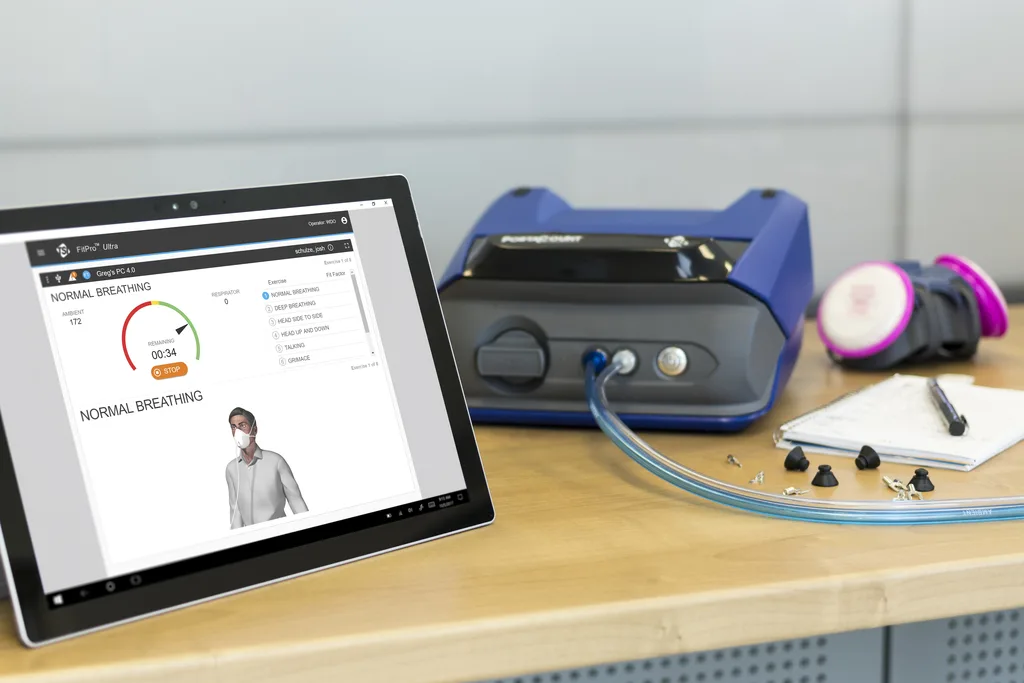Regular respirator fit testing is critical
HELPING PROTECT workers from hazardous inhalation hazards starts with a properly fitted respirator, says TSI.

In industrial environments where respiratory protective equipment (RPE) is used, achieving a proper fit is vital to workplace safety. Regular fit testing helps confirm that respirators provide an effective seal, protecting workers from exposure to harmful dust, mist, fumes, fog, smoke, gases, and other inhalation hazards.
Why fit testing Is essential
A respirator that doesn’t fit properly can compromise protection, even if the filter or chemical cartridge itself is working. Poor-fitting respirators allow contaminants to leak into the respirator, putting workers at risk for short- and long-term health issues and illnesses with a multitude of respiratory diseases or other physical, chemical and biological exposures.
Fit testing helps to ensure that the respirator forms an adequate seal with the wearer’s face. Since factors like weight changes, facial hair, dental work, and even new respirator models can impact fit, and testing should be conducted regularly — as recommended by HSE’s INDG 479.
Fit testing also gives workers the opportunity to be trained on proper donning, doffing, and fit-checking techniques — crucial steps for maintaining protection during the workday.
Understanding UK regulations
In the UK, when tight-fitting respirators are used as a control measure, COSHH regulations require that they are fit tested to achieve an effective seal. Regulatory guidance such as HSG53 and INDG 479 outlines how employers must select, fit, and maintain RPE to reduce workers’ exposure to hazardous substances.
This applies to industries such as construction, manufacturing, pharmaceuticals, healthcare, and more — anywhere tight-fitting RPE is in use. Regular fit testing is not just a best practice; it’s a legal requirement.
Investing in regular fit testing supports a strong health and safety culture, reduces sick leave and liability, and demonstrates compliance with UK regulatory standards. It’s a simple yet powerful step toward safeguarding both people and operations.
For more information, visit www.tsi.com
HSM publishes a weekly eNewsletter, delivering a carefully chosen selection of the latest stories straight to your inbox.
Subscribe here





